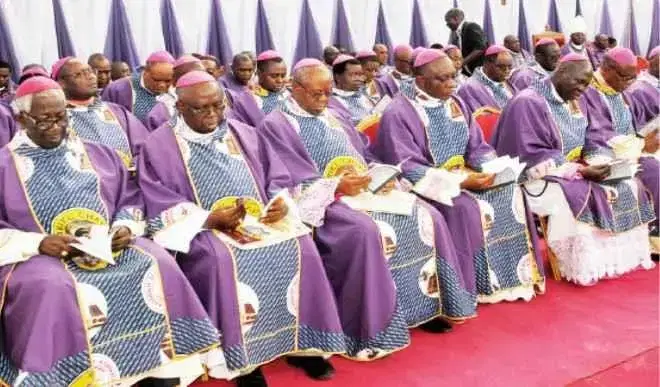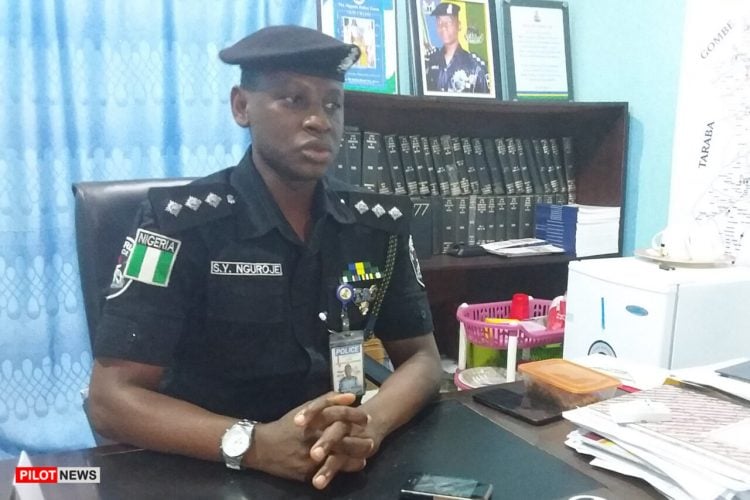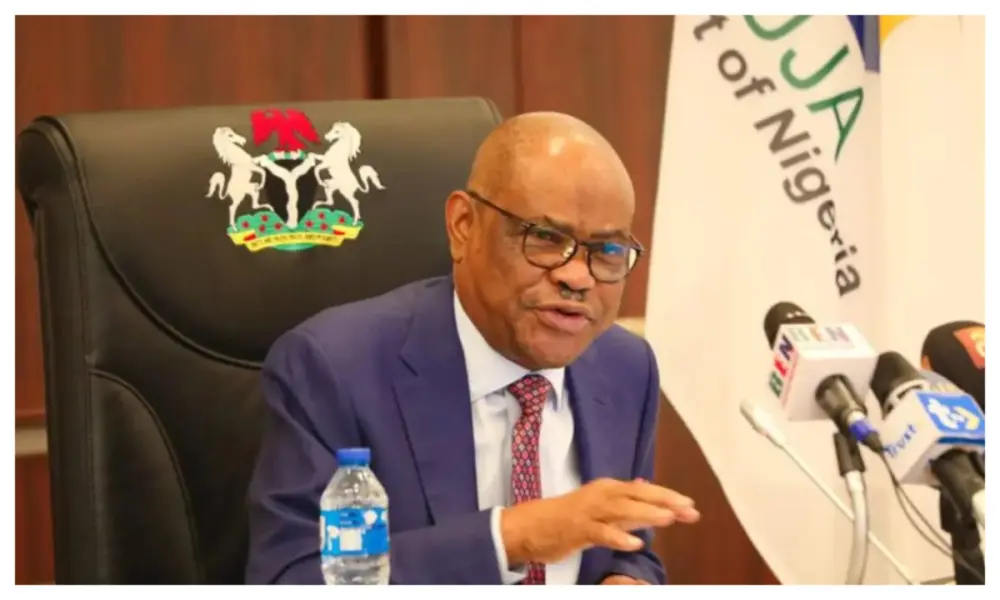The Catholic Bishops’ Conference of Nigeria (CBCN) has warned that Nigeria’s economic hardship, insecurity, and youth unemployment have reached alarming levels despite recent government reforms.
The bishops expressed grave concern over rising poverty, food inflation, kidnappings, and the deplorable state of correctional facilities, calling for urgent and decisive action to address the crisis.
The warning came during the 2025 First Plenary Meeting of the CBCN, held at the Catholic Secretariat of Nigeria (CSN) in Abuja on Sunday.
The event was attended by top religious leaders, including Most Rev. Lucius Ugorji, Archbishop of Owerri and CBCN President; Archbishop Daniel Okoh, President of the Christian Association of Nigeria (CAN); and Most Rev. Ignatius Kaigama, Catholic Archbishop of Abuja.
They urged the government to tackle the root causes of economic hardship and insecurity, emphasizing that millions of Nigerians are suffering under extreme conditions of poverty and fear.
Archbishop Ugorji acknowledged some government economic and fiscal reforms, such as road rehabilitation, the student loan scheme, and debt servicing reduction. However, he maintained that these efforts have not significantly improved the daily lives of Nigerians, as inflation continues to rise and the cost of living becomes unaffordable for many.
“While we recognize the government’s efforts in implementing certain reforms, the reality remains that most Nigerians are struggling more than ever before.
“Food inflation has hit 39.84%, making it nearly impossible for families to afford three meals a day. The statistics are alarming—129 million Nigerians are now living in multidimensional poverty.
“Palliatives and temporary relief programs are not enough. We need sustainable solutions that address the root causes of economic hardship.”
The bishops also raised alarms over worsening insecurity, with violent attacks by Boko Haram, bandits, and unknown gunmen increasing nationwide. They noted that kidnappings for ransom have escalated, with religious leaders among the latest targets.
Ugorji cited the recent abduction of Fr. Philip Ekweli and a major seminarian, as well as the brutal killing of Fr. Sylvester Okechukwu, as evidence of the growing threat.
“Our nation is under siege. We hear daily reports of innocent Nigerians being abducted, tortured, or killed by criminals who operate with seeming impunity.
“Even men of God are not spared. How much longer will we continue to live in fear?
“We call on the government to step up its security efforts, invest in intelligence gathering, and provide the necessary tools for our security forces to protect lives and property.”
With 53% of Nigeria’s young population unemployed, the bishops described the situation as a ticking time bomb.
They warned that widespread joblessness is pushing many young people into crime, including internet fraud, armed robbery, and ritual killings. The bishops urged the government to invest in vocational training and job creation initiatives to prevent further social unrest and radicalization of frustrated youths.
“It is heartbreaking to see our young people lose hope in their country.
“Many have turned to crime out of desperation, while others risk their lives on dangerous migration routes in search of a better future.
“This is unacceptable. The government must prioritize job creation and vocational training programs to engage our youths positively and prevent them from falling into the hands of criminal elements.”
The deplorable state of Nigeria’s correctional facilities was also a major concern.
The bishops criticized the overcrowded and inhumane conditions of the prisons, where 60-90% of inmates are awaiting trial.
They stressed the need for judicial reforms to ensure timely trials and improvements in prison infrastructure to align with global human rights standards. They also called for the expansion of rehabilitation programs to help inmates reintegrate into society.
Archbishop Daniel Okoh, CAN President, echoed these concerns, emphasizing the urgency of national healing and renewal.
“Our people are suffering like never before.
“Every day, families are forced to make heartbreaking choices—whether to eat or pay school fees, whether to buy medicine or pay rent.
“The gap between the rich and the poor has never been wider, and if we do not take urgent action, we risk plunging into deeper chaos.
“This is a time for national reflection and genuine efforts toward economic and social transformation.”
Similarly, Archbishop Ignatius Kaigama decried the deepening economic crisis, stating that poverty and inflation have crippled millions of households.
He urged the government to prioritize economic policies that provide relief to struggling citizens, warning that prolonged hardship could lead to increased social unrest.
Kaigama also called for a cultural shift away from materialism and corruption, urging Nigerians to embrace values of honesty, integrity, and community support.
“We cannot continue on this path of greed and self-interest.
“Corruption is eating away at the very fabric of our society. Leaders must lead with integrity, and citizens must hold them accountable.
“If we truly desire a better Nigeria, then we must all commit to a culture of fairness, justice, and shared responsibility.”
The bishops called for national transformation through good governance, social justice, and active citizen participation.
They stressed that a new Nigeria is possible only if political leaders demonstrate accountability, and citizens take responsibility for demanding change.



